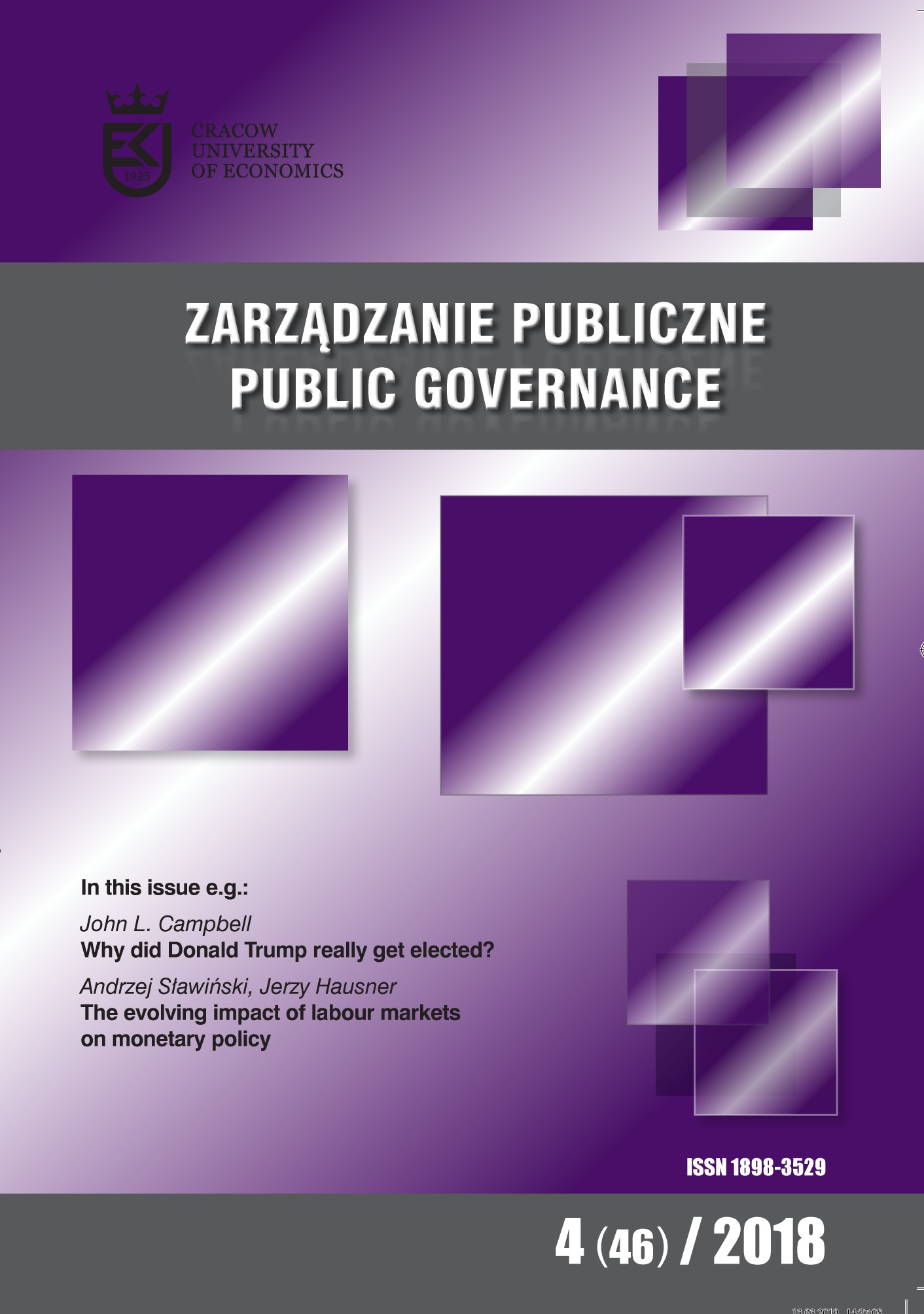The evolving impact of labour markets on monetary policy
The evolving impact of labour markets on monetary policy
Author(s): Andrzej Sławiński, Jerzy HausnerSubject(s): Politics, Sociology, Law on Economics, Financial Markets
Published by: Uniwersytet Ekonomiczny w Krakowie we współpracy z Wydawnictwem Naukowym Scholar
Keywords: monetary policy; wage-price spirals; labour bargaining power
Summary/Abstract: Objectives: The aim of this paper is to address the cycle from monetary policy becoming the main instrumentof macroeconomic stabilisation to the current unexpected decline in its effectiveness.Research Design and Methods: This article analyses how preventing the risk of wage-price spirals unwinding becamethe main task of central banks. Such a perception of monetary policy role was a natural consequence of the GreatInflation of the 1970s and the substantial costs of disinflation of the 1980s. Then this paper highlights the causes behindthe recent unexpected emergence of persistently low inflation. Among the most important causes of this were structuralchanges which took place also in labour markets, being the outcome of the twilight of traditional manufacturing andincreasing globalisation.Findings: The structural weakening of the bargaining position labour creates situation in which the period whenmonetary policy was focused on preventing wage-price spirals has ended. If advanced economies are entering a longperiod of low inflation and low interest rates, it will necessitate a reformulation of the role that central banks playin stabilisation policies.Recommendation: This paper postulates that central banks should acquire a pivotal role in the macroprudential policy.The main argument is that the independence of central banks, which they obtained when fighting inflation, wouldincrease the effectiveness of the macro-prudential policy.Contribution: Usually success in lowering and stabilising inflation is attributed mainly to the changes in the wayin which central banks have been conducting their monetary policy since the early 1980s. This article highlightsthe fact that the role which was played in this process by the substantial weakening of the labour bargaining positionis still underappreciated.Article Classification: Theoretical article. Original literature review
Journal: Zarządzanie Publiczne
- Issue Year: 2018
- Issue No: 46
- Page Range: 19-29
- Page Count: 11
- Language: English

